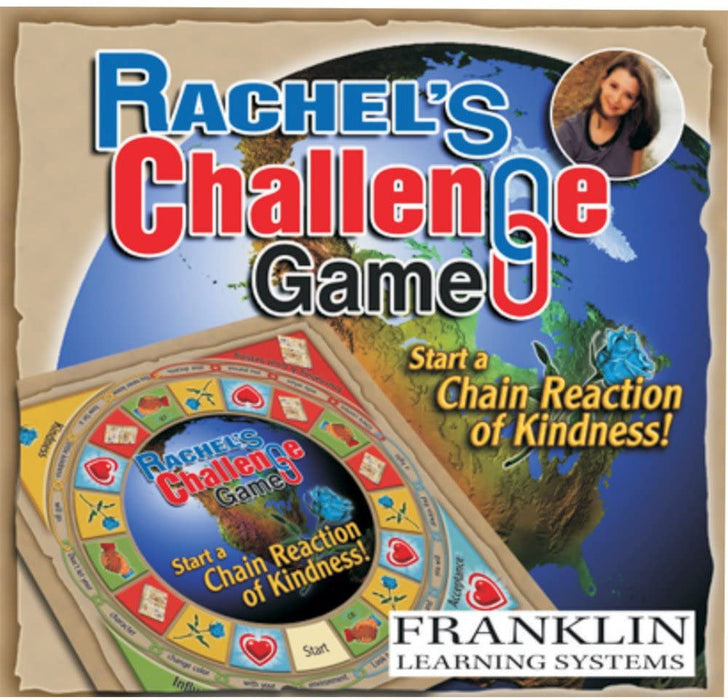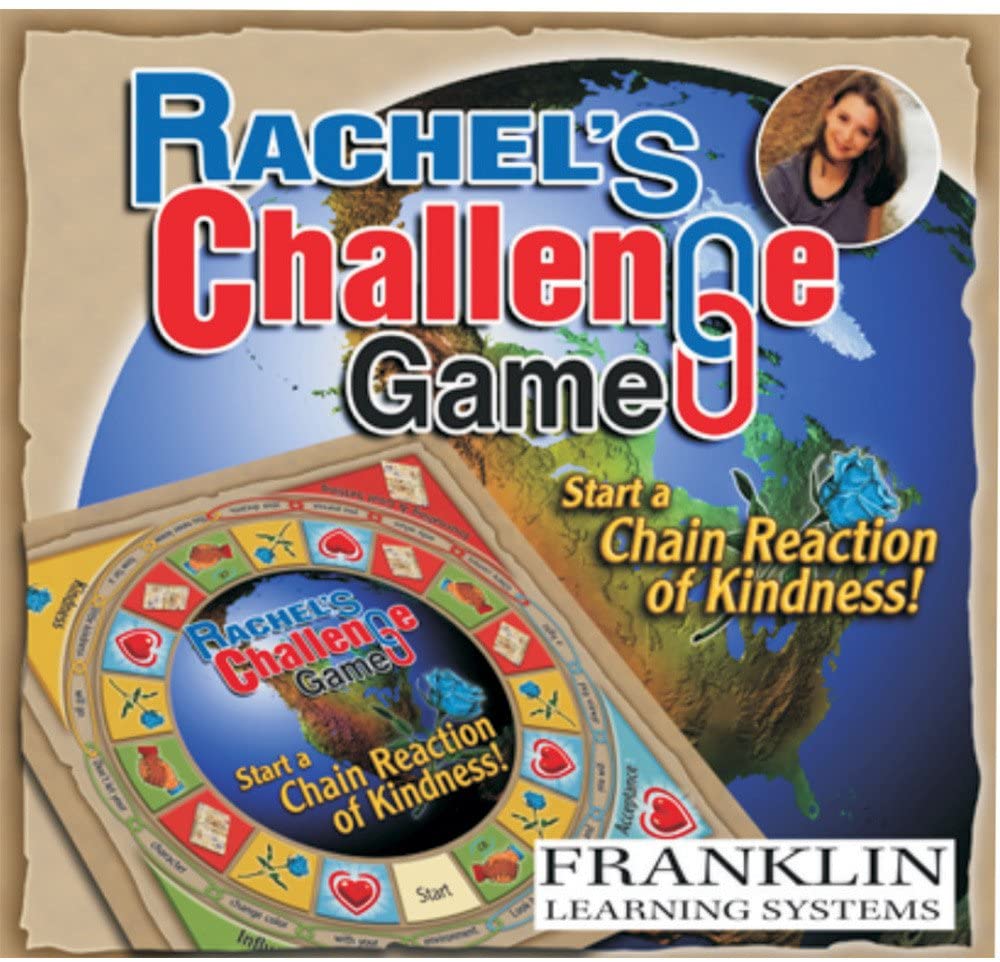Rachel's Challenge Game: Start A Chain Reaction of Kindness
Rachel’s Challenge
Rachel’s Challenge is a series of student empowering programs and strategies that help students and adults to combat bullying and reduce feelings of isolation and despair by creating a culture of kindness and compassion. The programs are based on the writings and life of 17 year-old Rachel Scott who was the first student killed at Columbine High School in 1999.
The Rachel’s Challenge organization conducts in-school programs including presentations and coordinated activities. The Rachel's Challenge game is an outgrowth of the success of the Rachel's Challenge programs. It can be used in conjunction with other Rachel's Challenge activities, as follow up, or independently.
Rachel’s Challenge Game is based on the beliefs of a high school student named Rachel Joy Scott. Rachel believed in treating everyone kindly-new kids in school, kids with disabilities, and kids who were being bullied or teased. She not only wrote about kindness, she lived her life that way! She looked for the best in others and believed that everyone can make the world a better place. One of Rachel’s biggest ideas was to start a chain reaction of kindness. She challenged every person to do at least one kind act each day. This would start a chain of happiness and kindness that would spread to other people.
The game board prominently displays the four cornerstones of Rachel’s philosophy. Those cornerstones are: Kindness, Acceptance, Positive Influence and Journaling and Goal Setting. There is a deck of cards with questions representing each cornerstone, as well as a deck of Chain Reaction cards that invite players to do unexpected kind things to other players. As players move around the board, they pick question cards matching the color of the space they land on. After answering the question, the player wins a chain link. Players join their links fo create a chain of kindness around the game board. There are two bags of links in the game box – one with text and one without text. The younger players use only the links without text, while the older players use both.
Card questions encourage players to discuss their experiences, thoughts, and feelings about important character issues. Players will be awarded one chain link for responding to the best of their ability. If players answer a true-false question incorrectly, the facilitator will explain the correct answer. Players will be given the chance to answer the same question again, this time correctly, to earn a chain link. The chain link earned will be the color from the category landed on.
Playing Time: Flexible from 30 minutes to 45 minutes. Players 2 to 5. Grades: 3 through 12
Learning Objectives:
1. Gain a deeper understanding of the principles of kindness & compassion, acceptance, journaling & goal setting, and positive influence.
2.Recognize the value of kindness and the role that each person can play in spreading good will toward others.
3.Think about how everyday words and actions can impact the lives of others.
4.Develop an increased sensitivity to others' differences and to practice acceptance.
5.Think about what it means to be a person of good character.
6.Inspire and empower students to develop their own permanent, positive code of ethics.
7.Become strong, positive leaders who demonstrate sound moral judgment.


